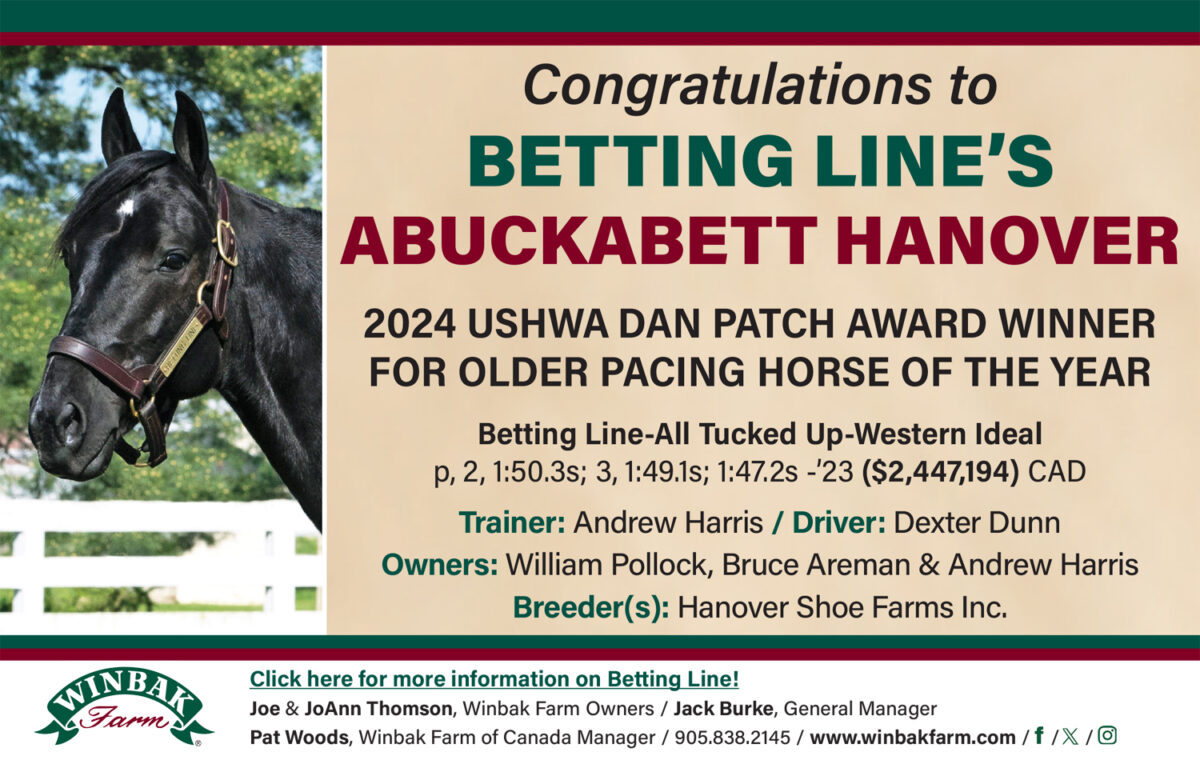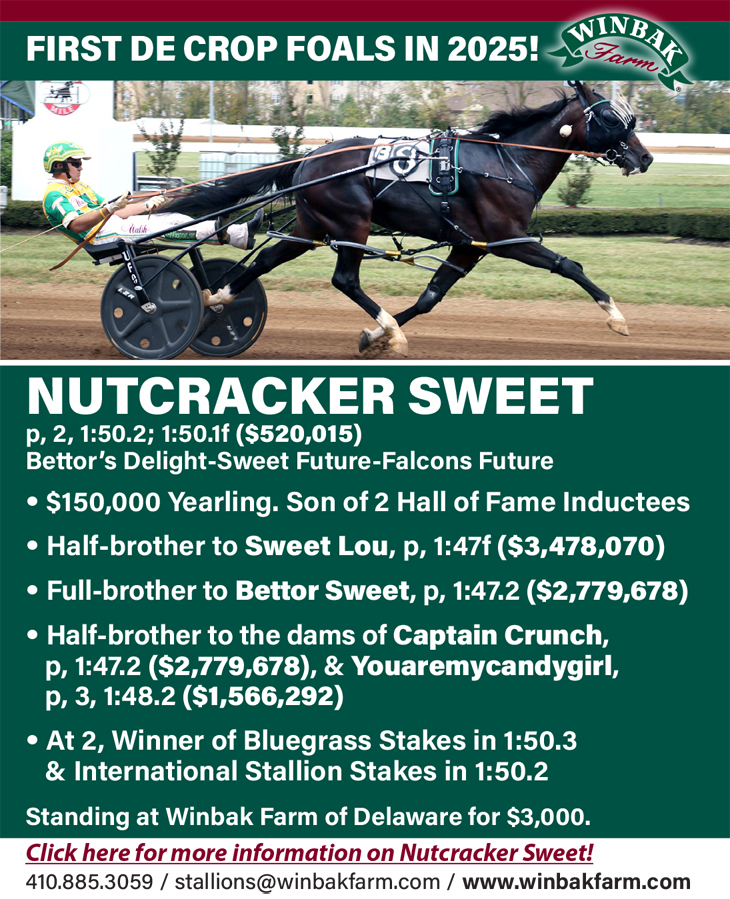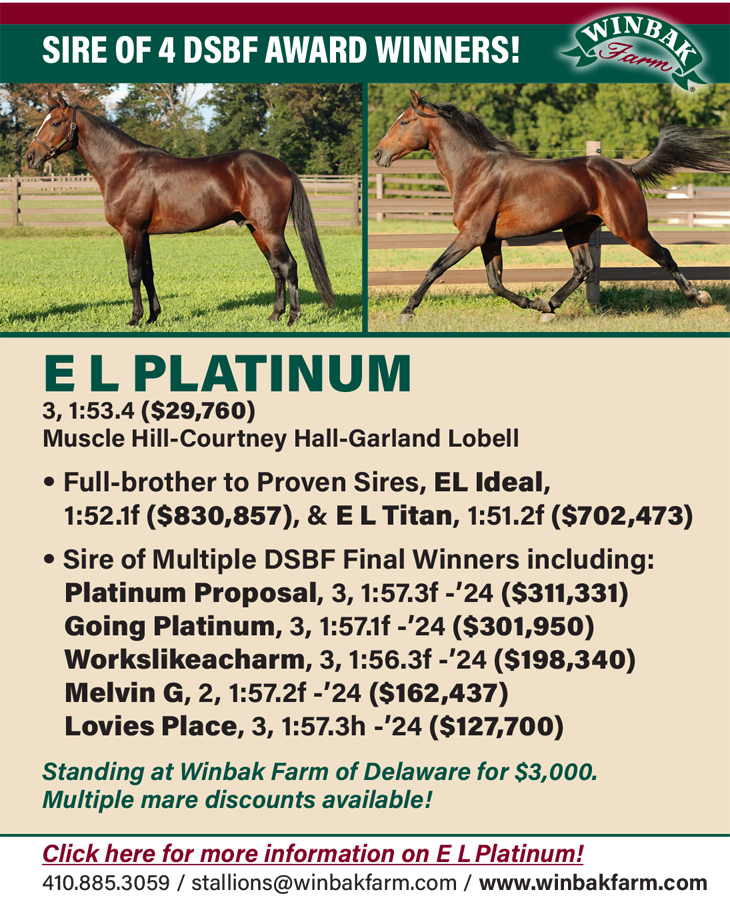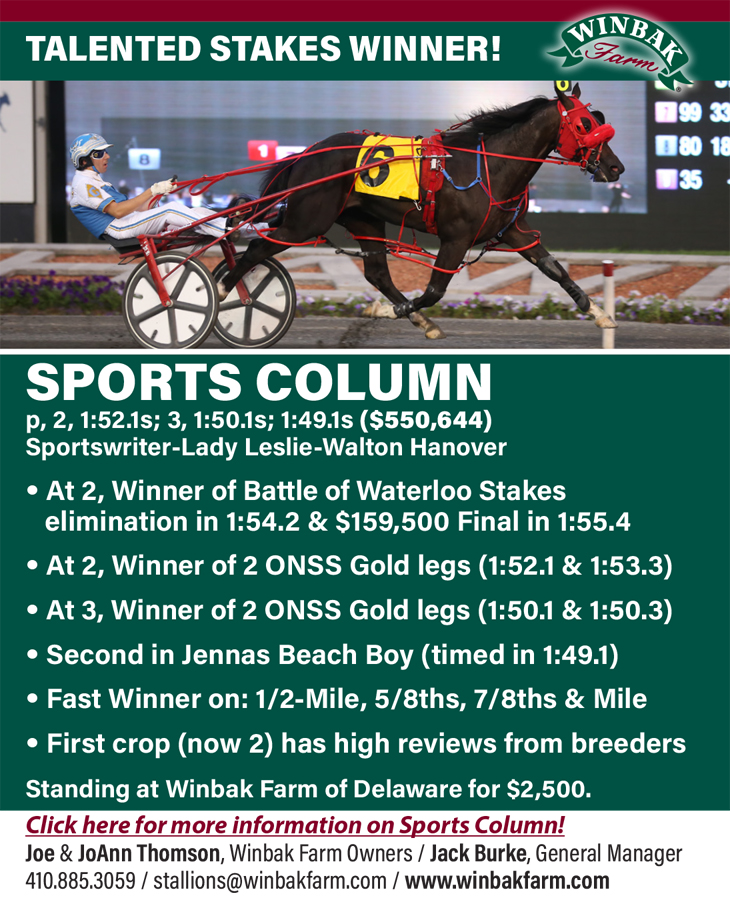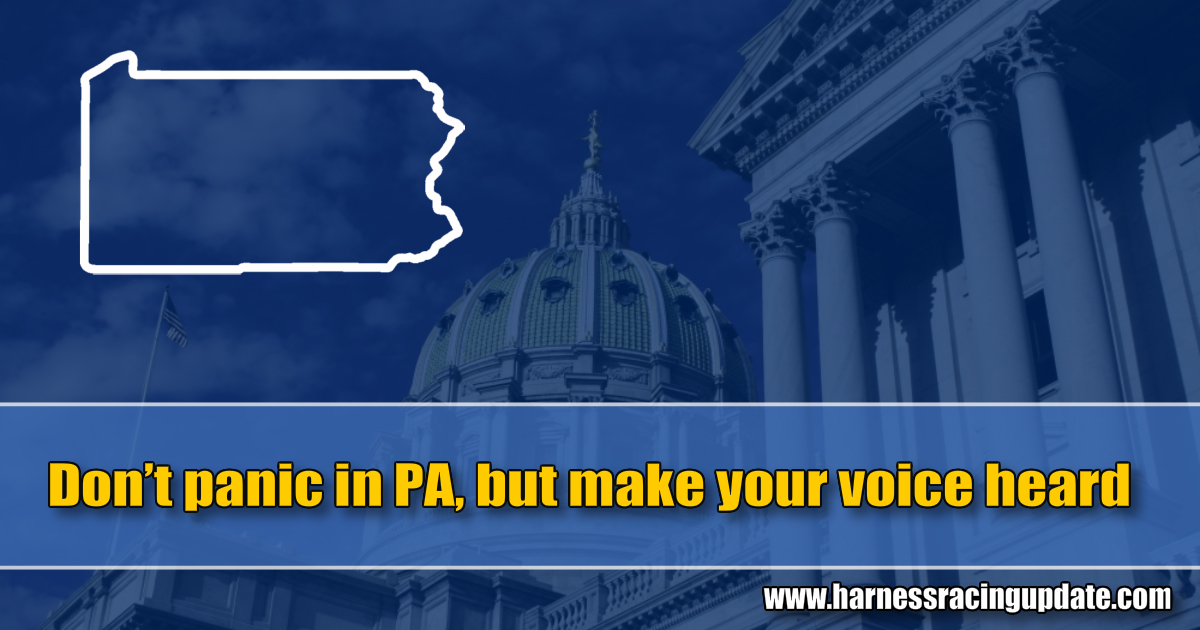
PA funding crisis: Don’t panic, but make your voice heard
That’s the advice from the Pennsylvania Equine Coalition executive director Pete Peterson after news this week that governor Tom Wolf is trying to raid $204 million from the Race Horse Development Trust that funds horse racing in the state.
by Dave Briggs
The executive director of the Pennsylvania Equine Coalition said people in the horse racing industry shouldn’t panic that the state’s governor has floated the idea of raiding $204 million from the Race Horse Development Trust Fund (RHDTF). Instead, people need to channel their emotions into action as soon as possible.
“I don’t want people to be overly alarmed or in a panic, but take that trepidation and concern they may have and take action on it,” Pete Peterson told HRU on Wednesday, one day after governor Tom Wolf released a 2020-21 budget proposal seeking to take $204 million from the RHDTF to fund a new scholarship program to support students attending one of the 14 state-owned universities (more background here).
Peterson, whose group speaks for the standardbred and thoroughbred breeders and the associations that represent the horsepeople that race at the state’s six tracks, told www.papost.org that should the governor’s proposal come to fruition, it would, “result in the end of horse racing in Pennsylvania by eviscerating the primary funding source for the purses and breeder incentives that serve as the lifeblood of the industry.”
Sam Beegle, president of the Pennsylvania Harness Horsemen’s Association (PHHA), told HRU he has five major talking points on the issue:
“1. The equine industry in PA is the state’s second-largest agricultural industry. 2. The industry provides an economic impact in the billions and supports an estimated tens of thousands of jobs. 3. Governor Wolf’s proposal violates a trust fund created by the legislature in 2007/2008. 4. He is being fiscally irresponsible, as he fails to take into account lost tax revenue. 5. Significant gains have been made in the PA breeding arena in the past two years, including at the 2019 Standardbred Horse Sale, which had the highest sale in history. This budget could undo all of this,” Beegle said.
The good news is the industry does have some powerful political allies, is well organized and has time to fight back. The budgetary process will roll out over the next four-and-a-half months.
“This is really just the beginning of the budgetary process and, more often than not, the legislature has been successful in getting the budget that it wants, not so much the governor. By and large, the budget is really shaped by the legislature and we have a lot of very strong allies and advocates that understand the importance of the industry that are in the legislature and they are behind us. They get it and they are working to talk to their colleagues about the industry as well,” Peterson said.
The legislature is controlled by the Republicans. Wolf is a Democrat.
“You have a legislature that’s controlled by the Republican party and you have a Democratic governor that wants to spend the money,” Peterson said. “When (Wolf) first came into office, he proposed a tax increase and it did not go over well with the Republican legislature. There’s not an appetite for tax increases, so you have a Democratic governor now who… has spending priorities and initiatives he wants to undertake and he knows he can’t get it through a tax increase so he’s looking at other sources of money. There’s only so many buckets.”
This is also not the first time the horse racing industry has successfully defended its major source of funding from state politicians looking to use some or all of that money to fund other initiatives.
“I don’t want to sound alarmist, by any means. If the community comes together and shares their stories and makes the legislature aware of the contributions and importance of the industry, then we’ll be successful. But I think this is an exercise we should be going through anyway,” Peterson said. “I would encourage all of your readers (in all jurisdictions) to do that, not just in crisis. Go through this process and conduct that outreach and become voices so that people can get a better understanding because there are a lot of misconceptions out there.”
By that Peterson means people need to take the time to, “show the broad amount of people that are in horse racing and who benefit from and derive their livelihood from horse racing.” He said the PA Equine Coalition is in the process of starting a campaign with the hashtag #wearePAhorseracing people can use when sharing their story. Alternatively, people can share their stories on the Coalition’s Facebook page.
“Also, you can go to the Pennsylvania legislature’s website and type in your zip code to find out who your legislator is and set up a meeting with them. I’m encouraging people to meet with their local representative in their district office, not when (the legislators) are in Harrisburg, but when they are back home, so they can meet people that work in their community, that live in their community, whose jobs depend on horse racing and breeding,” Peterson said.
Beegle suggested donations to the PHHA’s Political Action Fund (PAC) or an industry-related PAC in the state.
“The PAC money has kind of slowed down and if you’re concerned about this issue, send money into the PAC fund,” Beegle said.
“By and large, if we can get legislators to focus on the industry and delve into the issue, they tend to get it,” Peterson said. “They understand that there’s a good reason that the legislature and state government should be supporting the industry, rather than trying to hurt it by raiding funds that actually aren’t taxpayer dollars. Rather, they come from the casinos themselves, who agreed to fund the purses and breeders’ incentives because there was an understanding that as new (gaming) places coming in they would be increased competition for pari-mutuel wagering, but also to ensure that the benefits of gaming were spread out to the rural areas of the state and agricultural industries.”
Peterson said the governor’s desire to reduce student debt is admirable and will likely be popular, but you don’t address that issue, “by putting the 20,000 people that work in the (horse racing) industry out of work — putting all those horsemen and breeders, who contribute so much to the economy, into debt. You don’t solve one debt problem by making another debt problem and most legislators kind of understand that.”
He said the best arguments the industry can make to keep its funding revolves around the state’s significant breeding industry and contribution to the agriculture sector.
“(The RHDTF is) a major economic driver and people have this perception that the horse racing industry only supports people working at the track and that’s not the case. There’s so much more that the industry, particularly through what the breeders contribute to the economy and, more importantly, to the larger agricultural industry,” Peterson said, referencing all the hay farmers that benefit from the horse racing industry as one example.
“I think it’s communicating our best argument, that the industry has a much deeper impact than you can imagine or realize, through supporting farmers… Another major manufacturer in Pennsylvania is horse trailers. The industry represents a big part of their business. There are people in the barn construction or fencing… there’s so many economic sectors that benefit from horse racing and communicating that is important… to give everybody a better understanding of why horse racing is so important. That’s the most persuasive argument, I think, because it just shows that horse racing is a lot more than you think it is.”
Both Beegle and Peterson said they were surprised the issue of politicians raiding the RHDTF has come up again in Pennsylvania, particularly since the industry thought they had thoroughly safeguarded the money in 2017.
“I’m concerned because it’s an issue that we thought we had put to bed in ’17 and here we are in 2020 fighting it again,” Beegle said. “It’s quite a bit of money. They think it’s a tax, but it’s not a tax. Whatever year we started this, we made a deal with the state and the legislature – we would get our cut, they would get theirs, the casinos got their cut and that’s how it went. None of us thought that we’d get – I don’t know the right words – but that we would get attacked. It was the last thing from our minds.”
Peterson said there’s “continued misconception that these are tax dollars” which is why the language was made explicit when the trust fund was set up in 2017.
“There is language in there that says, ‘These are not funds of the commonwealth and the commonwealth should not be entitled to these monies.’ You can’t get much more clear than that,” Peterson said.
That language came as a result of politicians trying to raid some of horse racing’s money around 2010. Peterson said the fact that some money was diverted from the racing fund at that time, “kind of put the brakes on everything in terms of investment in the state. That’s a message we’ve been repeating over and over and over again, that we’ve got people that want to come to the state and it’s a long-term investment for them so they need some economic certainty, making a cost-benefit analysis like any businessperson would about ‘How secure is the industry, what does the breeders fund look like, is the purse structure secure?’”
“That’s the whole reason we pushed for this language and it’s been working. Since 2017, we’ve seen a huge influx of new investment in the horse racing business, so that’s a message we’re taking to the legislature and saying, ‘Look, you did this for a reason and it’s having the desired impact. You’ve got to shut this (talk) down now and make it clear that you’re not going to go along with this because it’s going to hurt the state long-term.’”
It’s yet another reason anyone who benefits from Pennsylvania’s Race Horse Development Trust Fund needs to let Pennsylvania’s politicians know the fund is critical to their investment in the state — and do so with haste lest the governor’s initiative gains momentum.
HOW THE INDUSTRY IS REACTING
Shortly after the governor’s intention to raid the RHDTF was made public, a number of individuals from the state’s racing, breeding, agriculture, and manufacturing industries told their stories to the PA Equine Coalition as follows:
Pat Chapman (Annville, PA) (owner of Smarty Jones): “I cannot believe that our governor would turn his back on the horse breeding and racing industry. This would be absolutely devastating to so many of us in the horse business. I brought Smarty Jones back to Pennsylvania for breeding because of what we were told four years ago and I thought I could trust what we were told. If the governor goes through with this proposal the end is near for my breeding and racing days in the state of Pennsylvania and the end for many others. This is a very devastating possibility.”
Russell C. Williams, president of Hanover Shoe Farms, Inc. (Hanover, PA): “We occupy 3,000 acres in Adams and York Counties and we’ve been here for 94 years. Forty families live on that land because one or more family members are employees of our farm, among about 80 employees total. At peak, over 1,000 horses also live on the farm, including more than 100 retired horses that have nowhere else to go. We also care for old forest and wetlands: yesterday I saw a blue heron down by the creek and a bald eagle in a tree on the main farm. We buy 1,500 tons of hay and 1,500 tons of straw from our neighbors every year, not to mention feed, farm machinery, fence boards, supplies, and equipment. Because of us, Pennsylvania is home to the number one standardbred breeding farm in the world. The governor has told me that he knows our farm from commuting between his businesses in York and Littlestown in past years. Last night, as I watched a new foal wobbling around in the foaling barn, I wondered how this governor could bring himself to destroy all that, injure so many people and animals, and shift Pennsylvania from being a Mecca for horse breeding and racing to being a non-entity.”
John Servis, thoroughbred breeder and trainer (Bensalem, PA): “Taking 200 million from PA horse racing would be absolutely devastating for not only the horseman and breeders but the entire agriculture industry. If this passes I will be putting a for sale sign on my house right away!”
James Towsey, hay farmer (Port Royal, PA): “The majority of my hay is sold to horseman in the racing industry. Changes to the fund would put those horsemen out of business, which would in turn put my hay business out of business.”
Jeff Altmeyer, Altmeyer Trailer Sales (Kittanning, PA): “The trickle-down effect on raiding the trust fund would be catastrophic. It would not only hurt our trailer sales, but also our service department. It will put some of our major customers, the farms and horsemen, right out of business.”
Ken Churchill, owner of Silver Springs Ranch (standardbred training center) (Harvey’s Lake, PA): “We have invested more than $5 million into opening our new, state-of-the-art standardbred training facility that sits on 78 majestic areas and began operations three years ago. We are currently the largest economic development project in Wyoming County and are second only to Walmart with development permits. Taking away money from the horse racing industry would not only put me out of business, it would affect the economy of our entire area.”
Adam Bowden, standardbred breeder, Diamond Creek Farm (Wellsville, PA): “As a major standardbred breeder who also breeds in Kentucky, it only made sense to set up shop in Pennsylvania based on the state’s support of horse racing and breeders. In 2012 we bought a farm, hired local employees, and employed local businesses to make major renovations, including the construction of three large barns. We stand six stallions and have now shifted the majority of our business to Pennsylvania. We love how supportive Pennsylvania has been to the racing and breeding industries and we hope it continues.”
Mark Reid, thoroughbred breeder and trainer (Kennett Square, PA): “I strongly oppose the governor taking any of the money from the Race Horse Development Trust Fund, which funds purses and breeder incentives. It will be the END of horse breeding and racing in Pennsylvania. The industry in Pennsylvania will never recover from this.”
Mike Wilder, harness racing driver at the Meadows Racetrack (Washington, PA): “Horse racing provides not only for my family, but also for so many others in the state of Pennsylvania. Our employees live here and the vendors and suppliers we purchase our goods from are based in the state. Horse racing has a huge economic impact that extends much further than just the racetracks that our horses compete on. The Race Horse Development Trust Fund affords all of us an opportunity to make a living in the Keystone State.”
Renee Nodine, equine vet at Horseshoe Valley Equine (Annville, PA): “It would be a complete disaster if governor Wolf takes $200 million from Pennsylvania’s horse racing industry. He is turning his back on hay farmers, breeders, and small businesses — and those are some of the hardest working people there are.”
Jon Wiesman, standardbred breeder/owner (York County): “If the Governor takes 200 million out of the Race Horse Development Trust Fund, it will eviscerate the entire PA horse breeding and racing industry, an industry that has yielded a following for over 150 years.”
Andrew Wolfsont, jockey at Penn National (Grantville, PA): “As a jockey at Penn National Race Course, the potential money to earn right now is the lowest I’ve seen it in my seven years living and working in Pennsylvania. If funding for the industry is cut by any significant amount, I will be forced to move out of state in order to continue to do what I love. Even worse, the people who I employ and most of the people who I work for will also be forced to uproot their lives to move out of state.”
Clarence Martin Jr., Martins Starting Gates (Honesdale, PA): “As the starter at Pennsylvania County Fairs, cutting races would put a big hurt on my business.”
Josh and Howard Kaufman, standardbred owners, (Philadelphia and Bryn Mawr, PA): “These proposed cuts would be devastating to my business here in Pennsylvania. The development fund is essential to PA racing and raiding the fund would destroy any investment into this product. As taxpaying PA residents, changes to the development fund would also drive us and thousands of others away from the state.”
Dr. Scott McAlister, owner, Centre Equine Practice (Centre Hall, PA): “These cuts will kill the horse racing industry in Pennsylvania. Horseman already contributes money to diagnostic labs and towards other programs.”
Layne Shaffer, farm manager at Arrowood Farm (thoroughbred) (York County): “If the governor takes money from Pennsylvania horsemen it would decimate the entire agricultural industry in the state. What people don’t understand is that the majority of horsemen don’t have a ton of money. Most of the money we earn goes to pay the veterinarian, the farrier, the hay farmer, the horse trailer driver and so on. If this happens, I don’t know what thousands of families in Pennsylvania will do and what will happen to the horses they love.”
Chris Gooden, horse racing photographer (Washington, PA): “Cuts to the development fund would shut down my business. I would lose everything I own. This business is my source of income.”
Tia Shafer, outrider at Pocono Downs (Wilkes-Barre, PA): “If cuts to the racing fund are approved, I would be terrified of what would happen to the people whose livelihoods depend on horse racing. I would like to know how the governor plans to deal with the increase in unemployment and the horses that will need re-homing after their owners lose their source of income and can no longer afford to feed them. This will affect thousands of lives, both human and equine.”
Gretchen Quick, photo-finish operator: “As photo finish operator at the PA Fairs, changes to the development fund would virtually erase over two-thirds of my business.”






